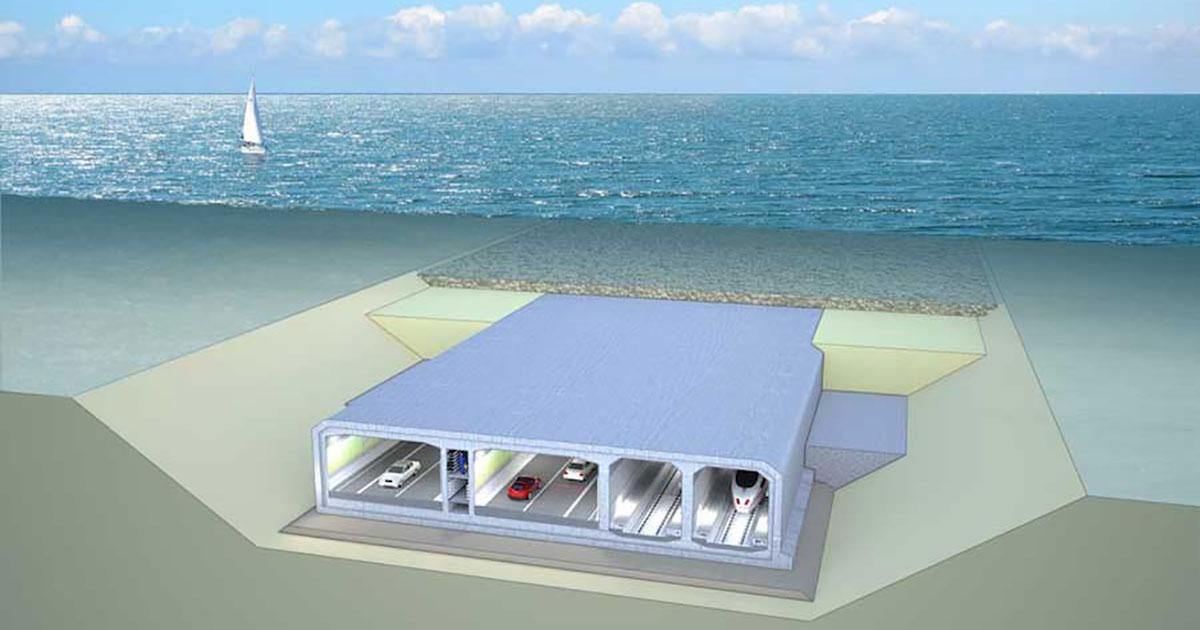Tunnel Linking Denmark and Germany Wins Approval

Construction of the nearly 18-km sunken-tube road and rail tunnel link between north Germany and Denmark is set to start following project approval by the German Ministry of Transport of Schleswig-Holstein state.
Copenhagen-based project sponsor Femern A/S is currently reviewing the construction requirements set out in the 1,000-page German approval document.
“The plan approval determines the requirements and conditions that must be met, especially in relation to the environment, in order for Femern A/S's construction work on the German side to proceed. We will now thoroughly analyze the approval, and then, during the spring, we will present scenarios on how we will achieve the project goals," says Claus Dynesen, Project Director at Femern A/S.
Once a plan is finalized, construction is expected to between eight and nine years. Seventy-nine 217-m-long precast concrete elements weighing about 73,000 tonnes each will be strung together to form the $8-billion immersed Femern Belt fixed-link tunnel between the islands of Lolland in Denmark and Fehmarn in Germany. With Denmark funding most of the work, Femern A/S is the project owner.
“This is the result of several years of cooperation between the parties involved in Denmark and Germany. The approval means that agreement has now been reached between the German authorities and Femern A/S on how to construct the tunnel,” said Dynesen
Denmark's state planning company was able to secure Danish approval for the project in 2015 but has taken longer to comply with more complicated German procedures while facing stiff environmental opposition in Schleswig-Holstein. The Danes began the German permitting process five years ago, submitting a final application that ran to 14,000 pages, according to Femern A/S.
German project opponents still have a chance to appeal against the approval in the Federal Administrative Court in Leipzig. The pace of any court action would determine when construction could start on the German side.
Because of the permitting uncertainty, Femern A/S was able to award only conditional contracts, worth around $4.6 billion, for the tunnel construction and dredging, in May 2016. The contract allowed for a review in 2019 in case of delayed approval.
An eight-firm international consortium, led by Paris-based VINCI Grands Projets, won both contracts to build the tunnel and the element fabrication facility in Rødbyhavn, Denmark. A four-firm Dutch/German consortium led by Boskalis International B.V. Papendrecht, Netherlands, won the dredging contract.
Most of the Fehmarnbelt construction work will take place on the Danish side at Rødbyhavn, where the largescale factory and work harbor for the production of the tunnel elements will be located.

